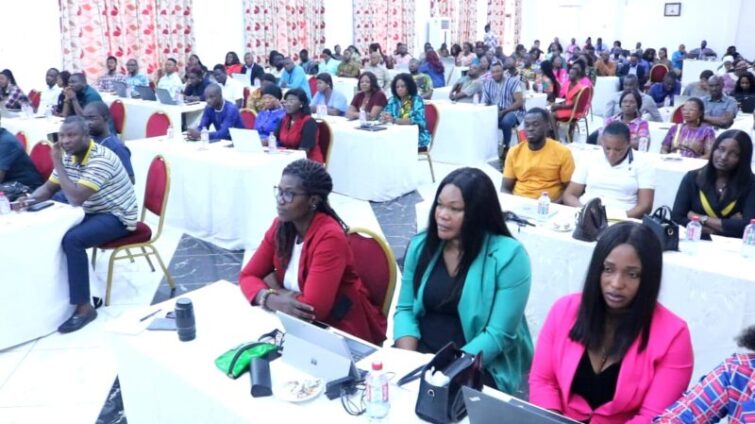At the 9th Annual Congress of the Local Government Procurement Professionals of Ghana (LOGPPAG), President Mr Haruna Nasir spoke out against two persistent challenges that hamper procurement professionals in local government: funding constraints and undue interference from higher authorities.
Held in the Volta Regional capital, Ho, this year’s congress, themed "The Role of Digital Procurement: The Path to Effectiveness and Efficiency," gathered members to explore innovations, address existing challenges, and chart a sustainable future for procurement in Ghana’s local governance.
Mr Nasir highlighted that limited funding has hampered the association’s efforts to maximize its impact. “Procurement is pivotal to the efficient use of public funds,” he emphasized, “yet funding shortfalls prevent us from fully realizing this potential.” The funding issue, he noted, limits the association’s capacity to implement necessary measures and technologies, restricting their effectiveness in ensuring fiscal responsibility and operational efficiency.

Mr Nasir spoke about the interference from senior officials, including administrative and political figures, which undermines the autonomy of procurement officers. This interference often pressures officers into decisions that do not align with legally mandated practices for fair, accountable, and transparent procurement. “Our goal is impartiality,” Nasir explained. “But these external pressures complicate our mission and compromise the integrity of procurement processes.”
However, Mr Nasir expressed optimism that LOGPPAG, by reinforcing its collective strength, can combat these issues and pave the way for a more independent and effective procurement system.
A key focus of the congress was the exploration of digital procurement systems, which Mr Nasir and other speakers promoted as a strategic solution to many existing inefficiencies. He stressed that digital procurement is essential for the future, citing its potential to streamline processes, reduce human interventions, and enhance transparency in transactions.

Richard Kumedzro, Chairman of the congress’s local planning committee, echoed Mr Nasir’s concerns about political interference, stating that procurement professionals are sometimes directed to act contrary to their professional judgment. “These directives often serve political motives rather than operational needs,” Kumedzro explained, underlining the complex political pressures embedded within procurement activities. He also pointed out the complexities and costs of government tender processes, illuminating why government procurement often entails high expenses.
In response, LOGPPAG members unanimously reaffirmed their commitment to advocate for both independence and increased funding for procurement professionals. They resolved to embrace digital innovation as the best path forward, with a vision for transforming procurement into a more transparent and efficient pillar of local governance.

As the congress concluded, the members pledged to continue their work towards an accountable and fair procurement environment, unimpeded by financial or political limitations.
Latest Stories
-
‘Expired’ rice scandal: FDA is complicit; top officials must be fired – Ablakwa
2 mins -
#TheManifestoDebate: We’ll provide potable water, expand water distribution network – NDC
20 mins -
IPR Ghana@50: Pupils educated to keep the environment clean
26 mins -
PenTrust CEO named ‘Best Pensions CEO’, company wins ‘Scheme Administrator Award’ at Ghana Accountancy & Finance Awards 2024
46 mins -
Alan Kyerematen’s ‘Brighter Future for Health Professionals’ in Ghana Revealed in Bono
56 mins -
#TheManifestoDebate: NPP will ensure a safer, cleaner and greener environment – Dr Kokofu
1 hour -
2024 Election: Police to deal with individuals who will cause trouble – IGP
1 hour -
Seychelles President’s visit rekindles historical and diplomatic ties with Ghana
1 hour -
Election 2024: EC destroys defective ballot papers for Ahafo and Volta regions
1 hour -
2024 Election: I am sad EC disqualified me, but I endorse CPP’s candidate – PNP’s Nabla
2 hours -
I want to build a modern, inclusive country anchored by systems and data – Bawumia to CSOs
2 hours -
Miss Health Ghana 2024: Kujori Esther Cachana crowned new Health Ambassador
2 hours -
Playback: The manifesto debate on WASH and climate change
2 hours -
Alan Kyerematen saddened by NDC and NPP’s neglect of Krofrom Market in the Ashanti Region
2 hours -
CSIR Executive Director urges farmers to adopt technology for improved farming
2 hours

